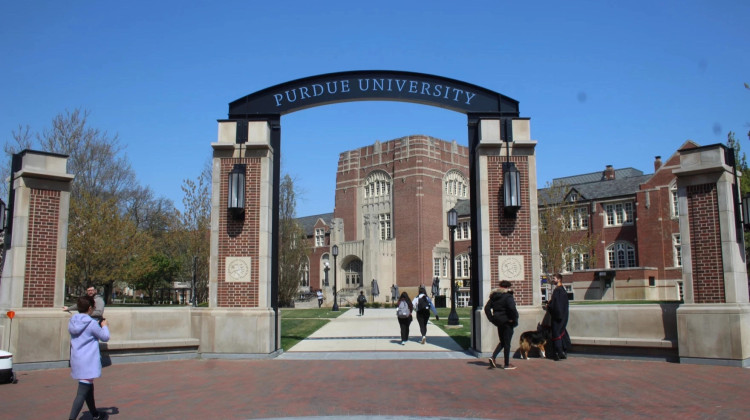
Legislators in the House approved the bill mostly along party lines, with a few Republicans voting against the bill.
Jeanie Lindsay/IPB NewsLawmakers approved a hotly debated school financial management bill during the special session Monday.
House Bill 1315 aims to prevent more school financial problems, gives Ball State University control of Muncie schools, and changes rules for those in Gary. Legislators failed to pass the bill during the regular session earlier this year.
Indiana State Teachers Association President Teresa Meredith joined educators from both Gary and Muncie at the statehouse to speak out against the bill before Monday's special session.
"By pursuing this bill, our legislators are abusing the purpose of a special session," Meredith says, "and if passed, it will have a profoundly negative impact on local control, teacher voice, and protections for kids in many of the communities across the state."
Some Democrats agreed and shared several other concerns before the vote. Ball State's charter school authorization record, and the bill's impact on voter rights in Gary were among them.
But bill author Rep. Tim Brown (R-Crawfordsville) says it will protect other schools from falling into future financial distress.
"This will allow some process for a gradual assistance - technical assistance, expertise assistance - going forward," he says.
The state will base the need for that assistance on a list of financial indicators designed to monitor school fiscal health. A new committee made up of members from a collection of state agencies including the Distressed Unit Appeals Board and the State Department of Education, and will create a so-called "financial health dashboard."
Sen. Eddie Melton (D-Gary), shared his remarks on the bill ahead of the Senate's vote. He says the bill is problematic for several reasons, but that race is another key issue to consider. Especially in light of the different provisions specific to Gary, a mostly black community, compared to Muncie, a mostly white one.
"As legislators, it's imperative for us to look through a lens of racial equity in Indiana," he says, "as we're making policies for all Hoosiers, created in a fair and equitable way."
The bill passed the House 63-30, and 34-14 in the Senate. The bill now heads to the governor.
 DONATE
DONATE








 Support WFYI. We can't do it without you.
Support WFYI. We can't do it without you.